- HOME
- Interest
We believe that theoretical/mathematical methods are useful to understand the principle mechanisms for biological systems.
It is especially powerful to understand how complex systems generate biological functions, such as homeostatic regulations, pattern formations or adaptive behaviors.
Progress of modern biology causes a rapid increase in information of molecules responsible for biological phenomena. We know that many species of bio-molecules including genes, proteins or other small molecules are involved in biological functions. These molecules interact between each other constructing complex network systems. Progress of biology also affects our life. We understand that some human diseases are caused by defects of genes, and new medical treatments have been invented based on such understanding.
On the other hand, we currently have a limited understanding for the emergence of biological functions from molecules. We do not know how (or why) molecular systems generate well-designed biological functions including homeostatic regulations, pattern formations or adaptive behaviors. We need to understand the mechanisms or the principles for the emergence of such biological functions.
The biology is now facing a large change in its methodology. In addition to the classical experimental and empirical methods, theoretical methods including mathematics, physics and computational science are becoming important. Such theoretical methods in biology are developing under the expectation to decipher huge amounts of experimental information, and to give integrative understanding of complex biological systems. The theories in biology are not mature sufficiently at present. However, we expect that we will enjoy a new bioscience which will progress by repeats of the theoretical predictions and the experimental verifications in the near future. We promote theoretical biology with the aim to open such new biology.
